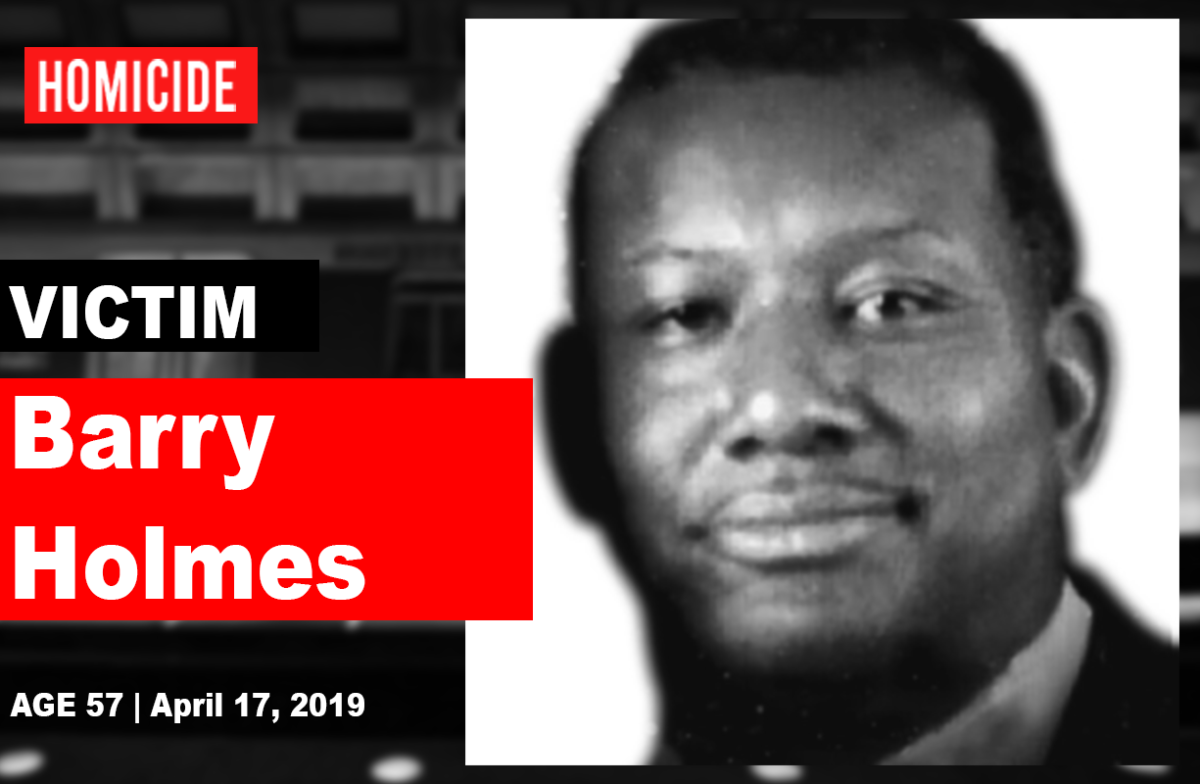
Thank you for reading D.C. Witness. Help us continue our mission into 2024.
Donate NowBy
Sadie Herman [former]
- January 12, 2024
Daily Stories
|
Homicides
|
Shooting
|
Suspects
|
Victims
|
On Jan.11, arguments in a motion hearing for the dismissal of a homicide case were heard by DC Superior Court Judge Maribeth Raffinan.
Terrance Barnes, 34, is charged with first-degree murder while armed and possession of a firearm during a crime of violence for his alleged involvement in the death of 57-year-old Barry Holmes, on April 17, 2019. The incident occurred on the 5100 block of Southern Avenue, SE.
The motion to dismiss the case is based on the defense’s assertion the prosecution failed to preserve evidence.
According to the written filing by Barnes’ attorneys, the prosecution consumed potentially exculpatory DNA evidence. The motion also explains that there was contamination during the DNA testing process, as well as failure by the prosecution to preserve discoverable evidence, stating that Barnes has a constitutional right to test the evidence, and asserted his rights in a previous hearing.
Barnes’ defense attorney, Pierce Suen, explained that the basic facts in this motion are undisputed. Namely, after the shooting gloves were recovered as evidence, and the DC Department of Forensic Science (DFS) sampled the evidence using a swab. During this sampling, biological material was removed from the gloves.
Then, the United States Attorney’s Office retested the materials in relation to another case, including the gloves swabs and the reagent blanks used during testing. They are a control mechanism in DNA testing to ensure that there has been no contamination in the process.
According to Suen, during the additional testing, DFS “completely batched the evidence”, and the reagent blanks in this case were totally consumed. Suen further elaborated the exculpatory evidence was crucial.
Suen further argued that the results from the DNA testing could have shown information regarding physical contact between Barnes and Holmes prior to the shooting.
According to Suen, although a witness testified that further testing can be done without a reagent blank, he argued that this is actually not true. He also said the Federal Bureau of Investigation quality assurance standards require DNA testing to be done with a reagent blank.
He explained that due to the destruction of the reagent blanks, they can’t verify any DNA testing in this case, and therefore no accredited laboratories will agree to test the samples. Suen explained that the witness was from another country, and so may not have been familiar with DNA testing in the United States.
Based on the DNA testing issues, Suen argued the case should be dismissed.
The prosecution emphasized that a non-accredited or international laboratory could perform further DNA testing for the defense. They further explained that the absence of a reagent blank doesn’t necessarily mean that no further testing can be performed, it just may be more difficult.
The prosecution then explained that in a motion for dismissal, bad faith has to be present, and that in this case there was none. They further argued that there is no basis for dismissal just because the process was not done in the most exacting fashion.
In response, Suen argued that he is not alleging that there was nefarious conduct in this case, but that the alleged recklessness of DFS and the U.S Attorney’s Office during the DNA testing rises to a level of bad faith.
Judge Raffinan questioned the prosecution in regards the consumption of the reagent blanks. She also asked for more clarification as to what was said by the prosecution in a previous hearing, about their knowledge of DNA testing misconduct.
The prosecution will have to make a written reply before the questions can be discussed in court.
Parties are expected to reconvene on April 26.
Follow this case